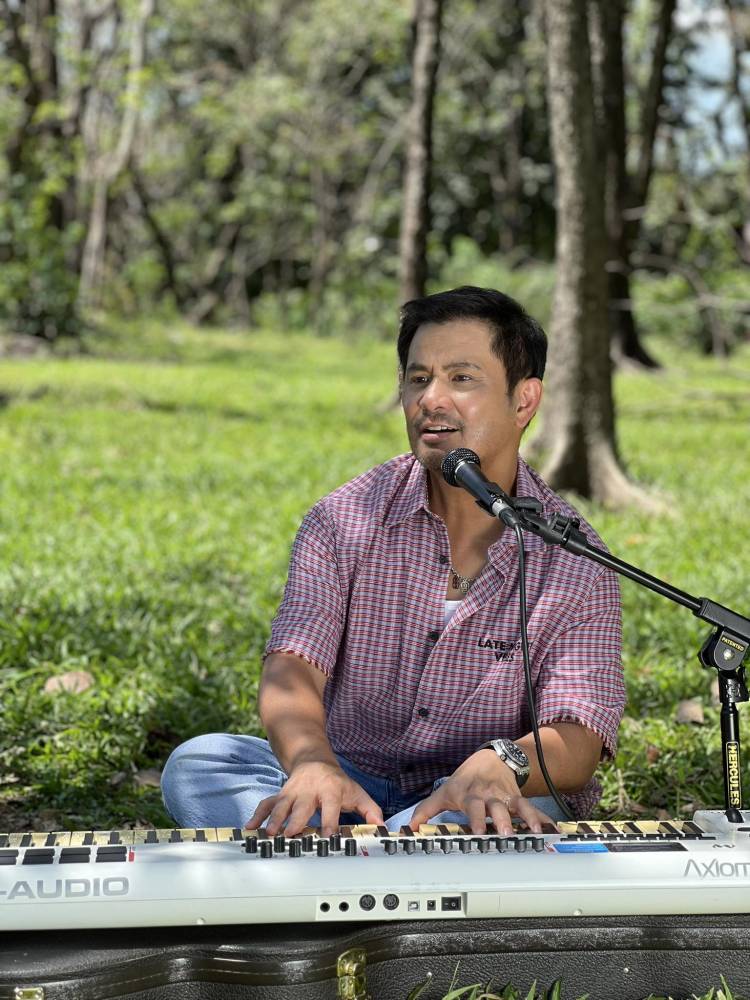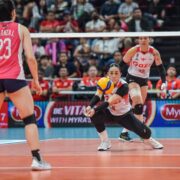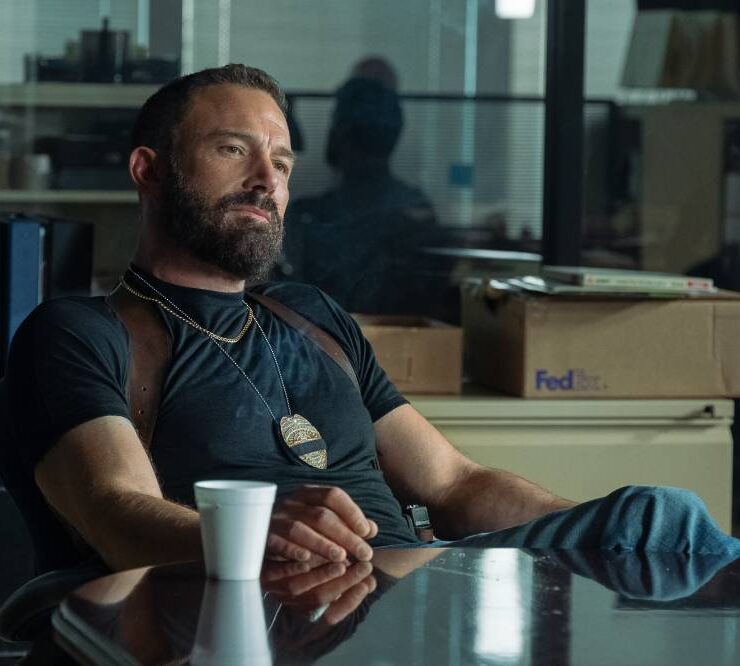Ogie Alcasid is having a Gen Z moment

For the longest time, Ogie Alcasid’s monthly listeners on Spotify never went beyond 500,000. And for the longest time, he wondered how he could grow that number, knowing that his core audience—the fans who grew up with him and are now in their middle age—aren’t typically active music streamers.
The answer was obvious: court a young crowd.
He wrote new songs with more contemporary production, like “IN LAB,” an alternative-pop track stylized in casual, all-caps in its title to project a more hip aesthetic. He stayed active on social media, posting lighthearted clips and hopping on dance trends. He continued visiting schools to teach songwriting and reach out to the students. He put out “Ulit,” an EP of reimagined old hits, which did well, but still appealed mostly to his market.
But in the end, the formula for virality has yet to be cracked, and an artist can only do so much with strategy. If there’s one thing we have seen time and time again in the streaming era, it’s that sometimes, a track will blow up when least expected, and for a confluence of reasons that are quite hard to pin down.
Such was the case with “Nandito Ako”—Alcasid’s first major hit written by Aaron Paul del Rosario and released in 1989—which recently saw a massive resurgence after a live cover by Rob Deniel went viral.

The viral trigger
Last January, at the 10th Wish Music Awards, Alcasid was honored as an Icon of Music Excellence. And as part of the tribute, Deniel—one of today’s Gen Z artists leading the OPM charge—took the stage and delivered an impassioned rendition of the Alcasid hits “Ikaw Sana” and “Nandito Ako.”
Alcasid was impressed. He accepted the award, gave a speech, and went on his way, thinking not much of it afterward. The crowd, at the time, felt similarly. But roughly seven months later, the performance exploded online, catching Alcasid completely by surprise.
Reaction videos and covers by other singers further fueled the hype. Before long, his monthly listeners had swelled to well over three million. The official performance video has 40 million views on YouTube. And as of this writing, the song remains in the Top 50 of Spotify Philippines’ Daily Top Songs chart, where it peaked at number 23.
“Rob’s fans liked the song, but since he doesn’t have a recording of that, they ended up on my Spotify page instead… They had no choice!” Alcasid says in a recent group interview, including Lifestyle Inquirer. “Surprisingly, this came at a time when I was trying to grow my listenership.”
That the performance’s impact took more than half a year to be felt remains a mystery—perhaps the timing simply wasn’t right, the algorithm failed to pick it up, the public wasn’t in the mood for it, or it didn’t immediately reach the ears of a big name influencer.
But here’s something hard to argue with: quality transcends. “Nandito Ako” is a beautiful ballad—and without that simple fact—no amount of luck or outside variables could have propelled it. And in the hands of a talented artist currently making waves like Deniel, a resurgence was always just a matter of time.

Learning from the young
This phenomenon also confirmed what Alcasid has believed all along: that even music icons like him have just as much to gain and learn from rising talents as the other way around. In fact, he shares, it was young stars Maki and Angela Ken who helped him make sense of why “Nandito Ako” became a new old hit.
“Maki told me that young people these days actually love emo songs,” Alcasid shares. “And that they find our contrasting interpretations interesting: that when they listen to Rob’s take, they feel a sense of yearning, and when they listen to mine, they feel security and reassurance. It’s all very fascinating, and I love that I’m learning from them.”
As for himself, he has been having a kick at revisiting the original version. “My vibrato was faster and my singing was more carefree. Now it’s airier,” says Alcasid, who has always held the song dear, has made it the final song in most of his shows.
It’s worth noting, though, that the song’s enduring popularity is no accident. “Nandito Ako” has had multiple, high-profile revivals over the decades, most notably by Lea Salonga in 1993, Thalia in 1997, and David Archuleta in 2012. But unlike sales, radio airplay, and media hype, today’s success metrics—by way of streaming—are more transparent and immediate, making it easier to gauge a song’s reach.
Alcasid and Deniel are wisely following this momentum. Deniel recently recorded “Ikaw Sana,” while Alcasid himself plans to re-record “Nandito Ako,” this time with string instrumentation. “Rob and I performed together in ‘It’s Showtime.’ He’s a better singer, I should say. But really, I’m just happy that someone so influential among young people appreciates the music we do,” he says.

A catalog-wide effect
The “Nandito Ako” hype inevitably rubbed off on the rest of Ogie Alcasid’s formidable discography, leading young fans to discover the classics he actually wrote, like “Sa Kanya,” “Kung Mawawala Ka,” and the duet “Hanggang Ngayon.” Now, even his other hits are gaining steam across the board.
Last month, on the variety show “ASAP,” Kai Montinola, another promising young talent, convinced Alcasid to sing a duet of “Bakit Ngayon Ka Lang.” It became another viral moment—maybe not to the same magnitude as “Nandito Ako,” but no less thrilling for Alcasid, who’s embracing his newfound visibility among Gen Z.
“I’m thankful for all these young people starting to discover and recognize my music. I’m humbled and shocked,” he says.
Where this wave will lead him, Alcasid isn’t sure yet. But what’s certain, he says, is that what happened has only inspired him to keep writing new music, find new ways to reach listeners, and avoid relying on the legacy of his old hits. He wants to continue keeping his finger on the pulse of what’s happening in the industry, and on emerging artists moving the needle and keeping local music alive.
“I want to do new projects using my classic hits. I’m more open than ever to collaborating with young artists,” he says. “And I hope to see more of my old songs come to life again.”





















